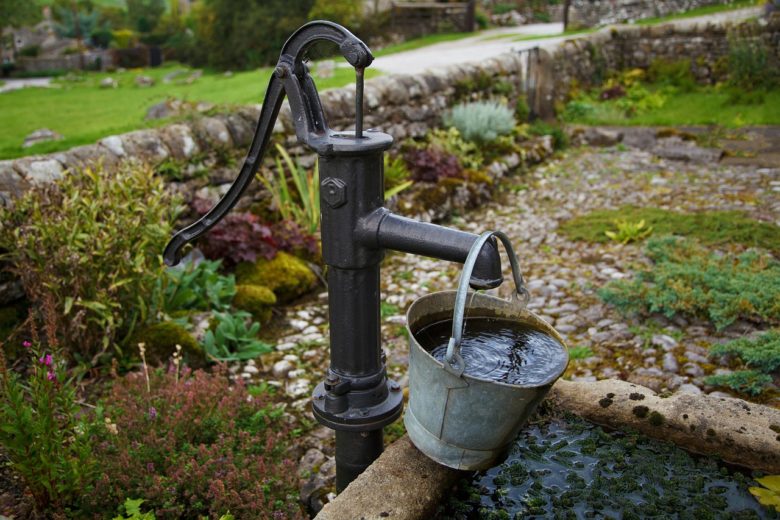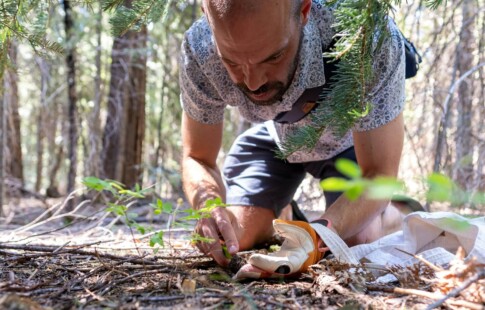
Homesteading Water Supply Options
We are reader-supported. When you buy through links on our site, we may earn affiliate commission.
Homesteading is a lifestyle characterized by self-sufficiency and independence from living on the grid. Homesteaders invest in subsistence agriculture, preservation of food and raising livestock or other animals to provide a self-sustaining life. However, the water supply is a source of strife for many individuals who invest in living independently from the grid. When buying a homestead, you should prioritize your water source when looking for a home. If you already own a property but do not have a viable source of water, there are alternative solutions available.
Dig a Well
Digging a well on your property creates a reliable source of water for your household. Although digging a well is expensive, upwards of $10,000, it allows you to be entirely off the grid and self-sufficient. Wells are perhaps the best long-term solution for homesteaders who desire a reliable source of water while remaining independent from the grid.
It is essential to decide whether your well will have a manual pump or an electric pump, and if it has an electric pump, how it will be powered. Manual pumps require more manual labor, but it ensures that you always have a source of water. Electric pumps allow for an automated water source, but they do rely on outside factors. Electric pumps are either powered by the grid, which can defeat the purpose of a well for some, or they are reliant upon solar or wind power, which puts your homestead at the mercy of the weather. These are all considerations when installing a well on your property.
Install a Hand Pump
Whether you have a well on your property and don’t want to spend the money on an electric pump or you are searching for an alternative method in case of emergencies, install a hand pump to your well to guarantee you always have a source of water. Solar and wind-powered pumps are excellent, but they put your homestead in the hands of the weather. They also have the possibility of breaking down over time. Hand pumps are the most reliable source for pumping water from your well. Hand pumps are budget-friendly and easy to install. You can also install a hand pump and an electric pump in your well for complete access to your property’s water.
Recycle Rain Water
Recycling rainwater has many potential benefits that make it a desirable water supply option for many homesteaders. Collecting and storing rainwater is an easy way to gather water and redistribute it across your property. Collecting rainwater is also an excellent use for watering gardens and providing water to animals and livestock. Reclaiming rain is environmentally beneficial and advantageous for homesteaders because it alleviates the stress put on natural water sources on the property, such as ponds or rivers.
If you are planning on collecting rainwater for drinking purposes, you need to be careful that you are doing it safely. There are many alternative methods for purifying rainwater for drinking once it is collected. A more straightforward solution is installing a purification system for your rain so that you receive clean and drinkable water. Purification systems cut out an extra step in the process and save you valuable time that you can spend elsewhere on your property. Procuring rainwater is a viable long-term solution as long as you live in an area where it rains regularly, and you have a process to clean the water.
Utilize Natural Water Sources
Rivers, streams, ponds, and lakes are all sources of natural water that are valuable to off-grid homesteaders. Natural water sources provide homeowners with easy access to water at all times, and it is relatively inexpensive compared to alternative water source solutions. Installing a water wheel is an excellent choice for those looking for an automated source to obtain water. Once a water wheel is up and running, it will pull water from the river or stream and collect it for you. Installing a water pump is another solution for managing water from a natural source. The water pump requires some manual labor, but it is a cost-friendly alternative to installing a water wheel. Either way, natural water sources are a great way to supply your homestead with water.
Haul and Store Water
If you can’t build a well at the moment and rainwater is not actively available, then hauling water to your homestead is a short-term solution. There are water trucks that will pull water to your property, and they will pump water into your water tank. This solution requires that you have a large cistern or water tank that a water truck can deposit the water into. However, this is a viable option if you find a fantastic piece of land that doesn’t have a source of water. This is also an excellent choice for homesteaders who are living in dry areas where water is not easily accessible.
Protect Your Water Supply
Regardless of what method you choose for your water supply, you must have access to clean, fresh water at your home. If you own a well, then monitor the quality of water you are receiving. If you collect rainwater, then install a purification system to ensure your water is drinkable. Some substances may negatively affect your health if your water is not adequately treated, but protecting your water supply from contamination allows your homestead to grow and thrive via clean drinking water.
Share on
Like what you read? Join other Environment.co readers!
Get the latest updates on our planet by subscribing to the Environment.co newsletter!
About the author

Jane Marsh
Starting from an early age, Jane Marsh loved all animals and became a budding environmentalist. Now, Jane works as the Editor-in-Chief of Environment.co where she covers topics related to climate policy, renewable energy, the food industry, and more.





